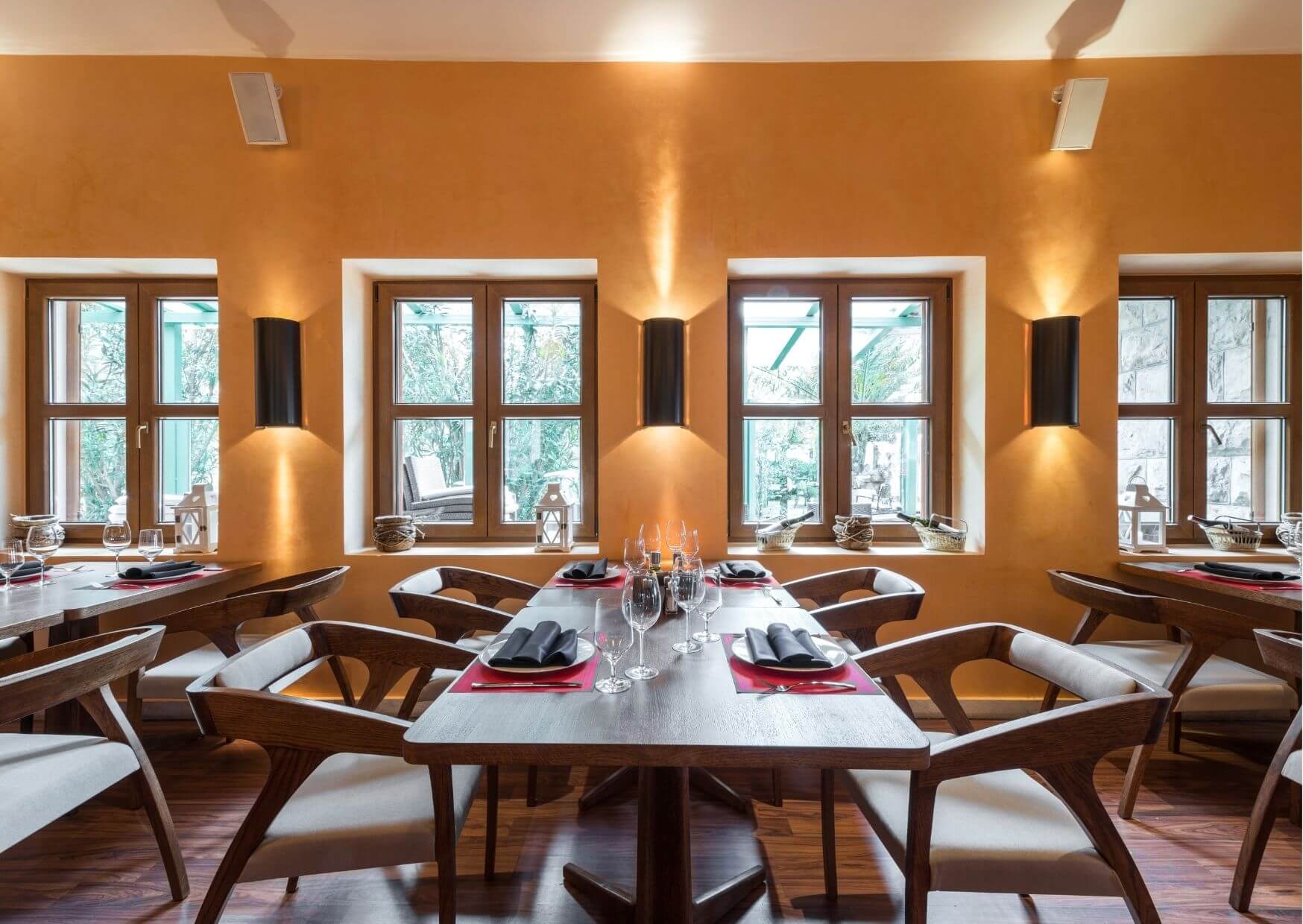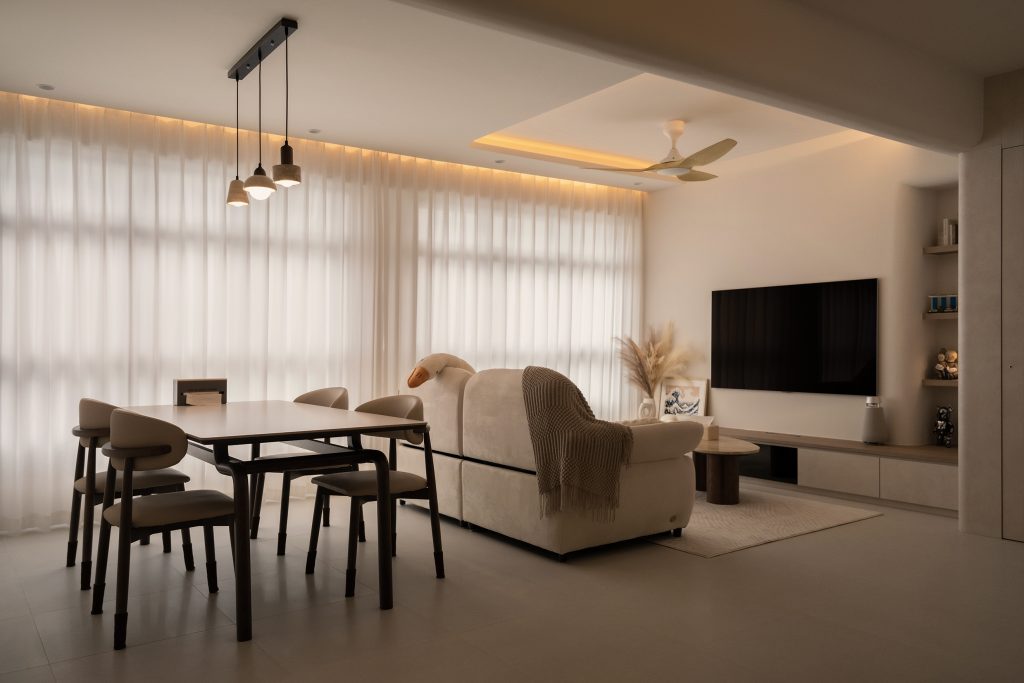As Singapore continues to solidify its position as a leading destination for entertainment and leisure, the role of hospitality design in crafting memorable experiences has become increasingly important. From luxurious hotels to vibrant entertainment venues, the design elements play a pivotal role in creating an immersive and captivating atmosphere for visitors. In this article, we will explore the significance of hospitality design and its impact on Singapore’s entertainment scene, showcasing how meticulous attention to detail can elevate the overall experience for guests.

In recent years, Singapore has witnessed a remarkable growth in its entertainment scene. The city-state attracts tourists from all over the world, seeking not only thrilling experiences but also a touch of luxury and sophistication. Hospitality design serves as the foundation for creating unique and memorable spaces that leave a lasting impression on visitors. Let’s delve into the various aspects of hospitality design and how they contribute to the overall experience in Singapore’s entertainment scene.
What is The Power of Hospitality Design?
Hospitality design encompasses a wide range of elements, including architecture, interior design, lighting, sound, and technology integration. When these components are thoughtfully combined, they create an environment that immerses guests in a world of luxury, comfort, and excitement. A well-designed entertainment venue can enhance the emotional connection between guests and the space, ensuring they have an unforgettable experience.
Creating a Captivating Entrance
The entrance sets the stage for what guests can expect from their visit. A carefully designed entrance creates a sense of anticipation and intrigue. From grand foyers to awe-inspiring facades, the architecture and design elements should reflect the essence of the venue and pique the curiosity of visitors.
Interior Design: Setting the Mood
Once guests step inside, the interior design plays a crucial role in setting the desired mood and ambiance. The choice of colors, materials, and furnishings should align with the theme and purpose of the space. Whether it’s a glamorous nightclub or a cozy hotel lounge, the retail interior design should evoke the desired emotions and create a comfortable and visually appealing environment.
The Role of Lighting and Sound
Lighting and sound are essential components that contribute to the overall atmosphere and sensory experience. Strategic lighting design can enhance the architectural features, highlight focal points, and create different moods throughout the day or night. Similarly, well-designed sound systems help create a dynamic and immersive audio experience, whether it’s background music or live performances.
Innovative Technology Integration
In today’s digital age, incorporating innovative technology is crucial to stay ahead in the entertainment industry. From interactive displays to augmented reality experiences, technology integration can elevate the level of engagement and provide guests with unique and interactive moments.
Creating Unique Focal Points
Focal points act as visual anchors that draw guests’ attention and leave a lasting impression. Whether it’s a captivating art installation, a breathtaking view, or a stunning architectural feature, these focal points serve as conversation starters and Instagram-worthy backdrops, encouraging guests to capture and share their experiences.
Incorporating Local Cultural Elements
To create an authentic and memorable experience, incorporating local cultural elements is essential. Singapore’s rich heritage and diverse cultural influences offer a wealth of inspiration for hospitality design. From traditional motifs to contemporary interpretations, infusing local flavors into the design helps create a unique sense of place.
Sustainable Design for a Greener Future
Sustainability has become a critical consideration in modern design practices. Incorporating eco-friendly materials, energy-efficient systems, and sustainable practices not only reduces the environmental impact but also appeals to conscious consumers who prioritize sustainability in their choices.
Enhancing Guest Comfort and Convenience
Guest comfort and convenience should be at the forefront of hospitality design. From ergonomic furniture and intuitive layouts to seamless navigation and efficient service delivery, every aspect should be designed with the guest’s needs in mind. A comfortable and hassle-free experience enhances guest satisfaction and encourages repeat visits.
The Importance of Ergonomics
Ergonomics plays a vital role in creating spaces that are not only visually appealing but also physically comfortable. Proper seating, ergonomic fixtures, and thoughtful spatial arrangements ensure that guests can enjoy the entertainment experience without discomfort or fatigue.
Harmonizing Form and Function
Effective hospitality design strikes a delicate balance between aesthetics and functionality. While the design should be visually stunning, it should also serve its purpose efficiently. Every element should have a purpose and contribute to the overall functionality of the space, ensuring a seamless and enjoyable experience for guests.
Embracing Versatility and Flexibility
Designing spaces with versatility and flexibility in mind allows for adaptability to different events and changing needs. Whether it’s a multi-purpose event venue or a hotel with modular room layouts, the ability to transform retail interior design efficiently enhances the overall guest experience and maximizes the utilization of the venue.
Trends in Hospitality Design
The world of hospitality design is ever-evolving, with new trends and innovations shaping the industry. From biophilic design and wellness-focused spaces to immersive experiences and sustainable initiatives, staying abreast of the latest trends ensures that entertainment venues remain fresh, relevant, and enticing to visitors.

FAQs
Q1: How does hospitality design impact guest experiences in Singapore’s entertainment scene?
Hospitality design sets the stage for memorable experiences in Singapore’s entertainment scene. It creates visually appealing and immersive spaces that engage guests on multiple levels, leaving a lasting impression.
Q2: What are some key elements of hospitality design?
Key elements of hospitality design include architecture, interior design, lighting, sound, technology integration, and incorporation of local cultural elements.
Q3: How does sustainability play a role in hospitality design?
Sustainability in hospitality design involves using eco-friendly materials, energy-efficient systems, and sustainable practices to reduce environmental impact and cater to environmentally conscious consumers.
Q4: Why is guest comfort important in hospitality design?
Guest comfort is crucial in hospitality design as it directly impacts guest satisfaction. Ergonomic furniture, intuitive layouts, and thoughtful spatial arrangements ensure a comfortable and enjoyable experience for guests.
Conclusion
In Singapore’s vibrant entertainment scene, hospitality design plays a pivotal role in crafting memorable experiences for guests. By combining architectural brilliance, thoughtful interior design, cutting-edge technology, and a touch of local culture, entertainment venues create immersive and captivating spaces that leave a lasting impression. The careful consideration of every element, from the entrance to the focal points, enhances guest comfort, engagement, and satisfaction.
In conclusion, “SHEinterior” brings three compelling reasons to the table for hiring their services in hospitality interior design. With their expertise in the field, they possess the knowledge and understanding to transform spaces into remarkable environments that leave a lasting impression on guests. Their commitment to tailored designs ensures that each establishment receives a unique and personalized atmosphere that aligns with its brand identity. Additionally, their comprehensive approach provides clients with a seamless and hassle-free experience, as they take care of every aspect of the design process. By choosing “SHEinterior,” hospitality establishments can confidently rely on their expertise, creativity, and attention to detail to create exceptional experiences for their guests.


